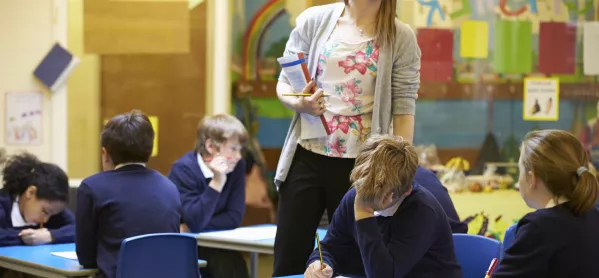It’s that time of year again. Schools across the country are undertaking final preparations, children are sitting practice papers, and teachers are doing their absolute best to remain calm.
Sats week is crunch time for UK primary schools. It’s the top of the mountain as far as the academic year goes. Once overcome, it is a smooth downhill ride to the end of term. But why are teachers, parents, and most importantly children, forced to climb the mountain in the first place? Is the gain worth the pain? The answer is a resounding no.
Inaccurate picture
Sats tests are supposed to act as a guide. They are supposed to inform secondary schools as to the academic ability of their new cohort and inform prospective parents as to the quality of a primary school. They do neither.
Children are taught to pass Sats tests. I know this from personal experience. I have seen children with vastly different academic abilities achieve similarly high results in Sats. Such was my concern about this, that over a four-year period I screened the reading ages of children coming into one of the schools where I was an adviser. Every year, the primary feeders were reporting improved reading scores, and every year the reading ages of the new cohort were decreasing.
The effect this has is threefold:
- Children are often streamed when they reach secondary school based on their Sats results. If Sats aren’t providing an accurate picture of those children’s academic ability then quite clearly this streaming is going to be skewed.
- Secondary schools are judged against predicted GCSE grades - grades that are set using Sats results as a baseline. Again, if these are not entirely accurate then those predictions are going to be extremely misleading.
- And finally, for those children who are being taught purely with Sats in mind (which many are), how much education are they missing out on? Limiting children’s teaching to the ability to pass tests is a sad reflection of the state of education.
As well as the issues surrounding teaching to the test, we also need to consider the effect that Sats have on the children. Around 720,000 children suffer from mental health issues in this country. That’s one in 10 or, more shockingly, three per classroom. Of course Sats are not solely to blame, but they are certainly not helping. The ATL teaching union recently said that the pressure placed on 10 and 11-year-olds was “excessive”, and I could not agree more. Furthermore, such is the burden on the shoulders of Year 6 teachers that it is impossible for their anxiety not to tranfer to the children.
The answer? Get rid of Sats altogether. There is absolutely no reason why teacher assessment cannot be the sole method of evaluation. A teacher knows their pupils’ ability levels far better than any Sats paper ever can.
Katy Parkinson is founder director of Sound Training, a literacy programme aimed at children aged 10 and over
Want to keep up with the latest education news and opinion? Follow TES on Twitter and like TES on Facebook
